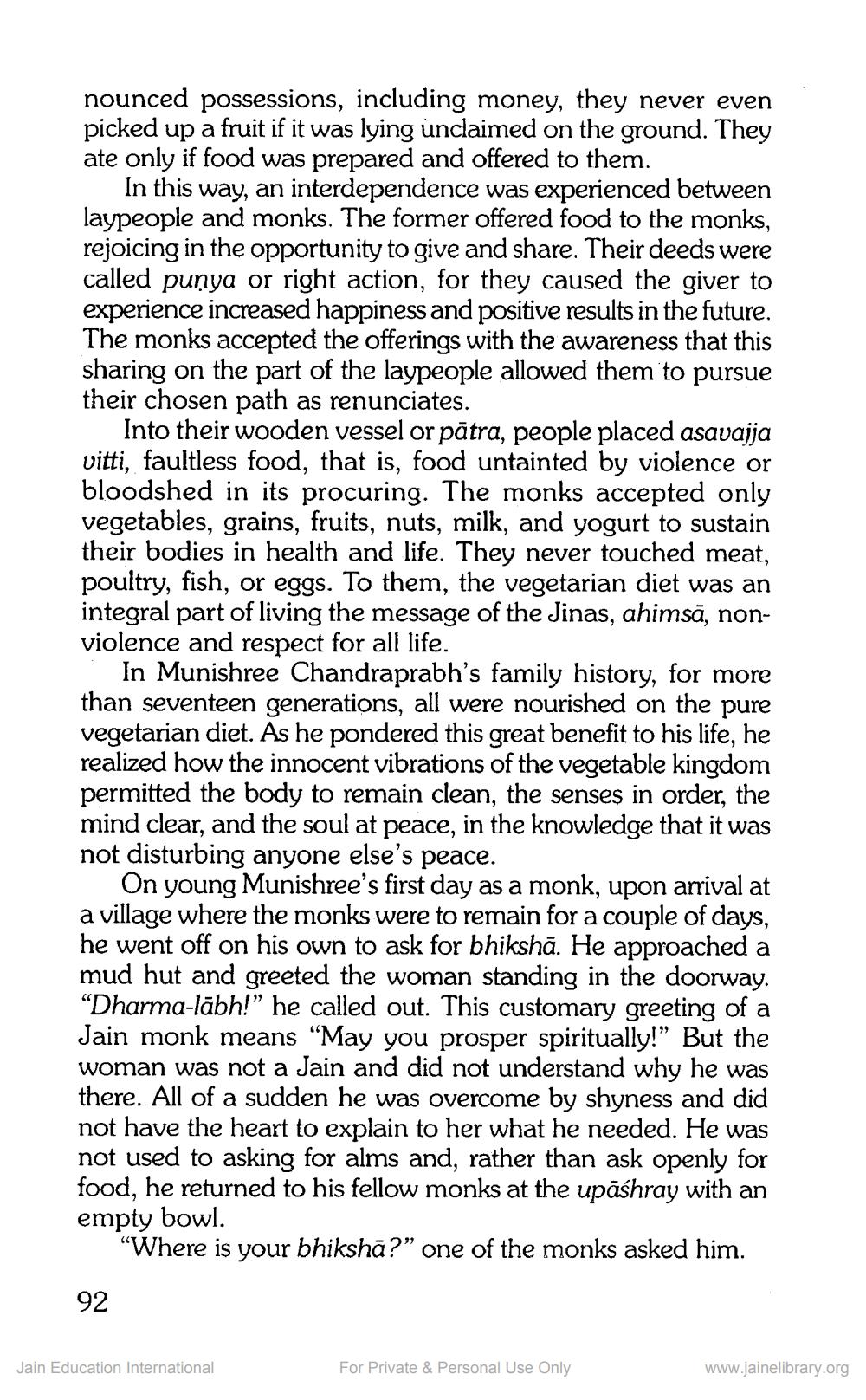________________
nounced possessions, including money, they never even picked up a fruit if it was lying unclaimed on the ground. They ate only if food was prepared and offered to them.
In this way, an interdependence was experienced between laypeople and monks. The former offered food to the monks, rejoicing in the opportunity to give and share. Their deeds were called punya or right action, for they caused the giver to experience increased happiness and positive results in the future. The monks accepted the offerings with the awareness that this sharing on the part of the laypeople allowed them to pursue their chosen path as renunciates.
Into their wooden vessel or pātra, people placed asavajja vitti, faultless food, that is, food untainted by violence or bloodshed in its procuring. The monks accepted only vegetables, grains, fruits, nuts, milk, and yogurt to sustain their bodies in health and life. They never touched meat, poultry, fish, or eggs. To them, the vegetarian diet was an integral part of living the message of the Jinas, ahimsā, nonviolence and respect for all life
In Munishree Chandraprabh's family history, for more than seventeen generations, all were nourished on the pure vegetarian diet. As he pondered this great benefit to his life, he realized how the innocent vibrations of the vegetable kingdom permitted the body to remain clean, the senses in order, the mind clear, and the soul at peace, in the knowledge that it was not disturbing anyone else's peace.
On young Munishree's first day as a monk, upon arrival at a village where the monks were to remain for a couple of days, he went off on his own to ask for bhikshā. He approached a mud hut and greeted the woman standing in the doorway. “Dharma-lābh!” he called out. This customary greeting of a Jain monk means “May you prosper spiritually!" But the woman was not a Jain and did not understand why he was there. All of a sudden he was overcome by shyness and did not have the heart to explain to her what he needed. He was not used to asking for alms and, rather than ask openly for food, he returned to his fellow monks at the upāshray with an empty bowl.
"Where is your bhikshā?” one of the monks asked him.
92
Jain Education International
For Private & Personal Use Only
www.jainelibrary.org




